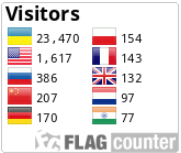INVESTIGATING FACTORS ENHANCING INTERCULTURAL COMMUNICATION: FROM STUDENTS’ WRITING TO TEACHERS’ PRACTICE
DOI:
https://doi.org/10.28925/2518-7635.2018.3.13Keywords:
communication strategies, intercultural communication, Greek education, young learners.Abstract
Intercultural communication constitutes a research field with an increasing interest within the Greek context, as the Greek classes are characterized to a great extent by a cultural- and linguistic- diversity. This study aims at investigating linguistic-elements used by students as a key-factor affecting intercultural written communication between Greek students and students coming from other countries. Effectiveness in intercultural communication is a multifaceted factor which is dependent both on the use of intercultural communication strategies and on the way that speakers/writers modify their utterances in terms of either softening or intensifying their speech as well. More specifically, through this research attempt was made to record internal modifiers, linguistic elements which act either as downgraders (mitigators), aiming to soften the act or as upgraders aiming to intensify the coerciveness or urgency of the act performed by the speakers. Towards that goal, a subject of 150 students (11-12 years of age) was urged to influence a pen-friend from another cultural environment, as regards to taking up a new sports-activity while the scripts of the students underwent investigatory qualitative research. Following the qualitative analysis of the students’ pieces of writing, it was revealed that students made an extensive use of a) downgraders like the marker 'please', consultative devices and subjectivisers as well as b) upgraders such as overstaters and time intensifiers. With respect to the fact that employing modification within the context of social interaction among people from different cultural backgrounds is of utmost importance, it is necessary the students to get familiarized with the significance of modification in their discourse and be encouraged to make use of modifiers which empower their communication within and outside the school context.
Downloads
References
Achiba, M. (2003). Learning to Request in a Second Language: Child Interlanguage Pragmatics. Multilingual Matters, Clevedon, England.
Barron, A. (2006). Requesting in Irish English and English English: a study of intra-lingual regional pragmatic variation. Paper presented at the 31st International LAUD Symposium. Intercultural Pragmatics, Linguistics, Social and Cognitive Approaches, Landau/Pfalz, Germany.
Blum-Kulka, S., & Levenston, E. (1987). Lexical-grammatical pragmatic indicators. Studies in Second Language Acquisition, Vol.9, No. 2, 155–170.
Blum-Kulka, S., & Olshtain, E. (1984). Requests and apologies: a cross cultural study of speech act realization patterns. Applied Linguistics, Vol. 5, 196– 213.
Blum-Kulka, S., House, J., & Kasper, G. (1989). Cross-cultural Pragmatics: Requests and Apologies. Ablex, Norwood, NJ.
Blum-Kulka, S. (1985). Modifiers as indicating devices: the case of requests. Theoretical Linguistics, Vol. 12, No. 2–3, 213–229.
Byram, M. (1997). Teaching and Assessing Intercultural Communicative Competence. Clevedon: Multilingual Matters.
Chen, M., & Starosta, J. (1998). Intercultural communication competence: a synthesis. Communication Yearbook, 19, 353–383.
Council of Europe. (2001). Common European framework of reference for langue learning, teaching, assessment. Cambridge, UK: Cambridge University Press.
Council of Europe. (2016). Competences for democratic culture. Strasbourg, France.
Dinas, K., & Griva, E. (2017). Inter/Multi-cultural awareness and communication in the teaching of Greek as a second language: Teaching practices, proposals and perspectives. In N. Tsitsanoudi (Ed.), Language and Culture. Athens, Greece: Ed. Gutenberg.
Economidou-Kogetsidis, M. (2011). ‘‘Please answer me as soon as possible’’: Pragmatic failure in non-native speakers’ e-mail requests to faculty. Journal of Pragmatics. doi:10.1016/j.pragma.2011.06.006
Economidou-Kogetsidis, M. (2008). Internal and external mitigation in interlanguage request production: the case of Greek learners of English. Journal of Politeness Research: Language, Behaviour, Culture, Vol. 4, No. 1, 111–138.
Economidou-Kogetsidis, M. (2009). Interlanguage request modification: the use of lexical/phrasal downgraders and mitigating supportive moves. Multilingua, Vol. 28 No. 1, 79–112.
Edmondson, W. (1981). Spoken Discourse: A Model for Analysis. Longman, London.
Griva, E., & Chostelidou, D. (2012). Additive bilingualism of immigrant children: introducing a multisensory project in kindergarten. In H. Switzer D. Foulker (Eds). Kindergartens: Teaching Methods, Expectations and Current Challenges, 83–104. Nova Science publishers, INC.
Griva, E., & Papadopoulos, I. (in press 2017). ‘We and our neighbours”: Developing Communication Strategies and Intercultural Awareness in a Foreign Language Classroom. In E. Griva & V. Zorbas (Eds.). Multicultural and citizenship awareness through language: cross thematic practices in language pedagogy. New York, USA: Nova Press Sc.
Griva, E., & Semoglou, K. (2015). Foreign language and Games: Designing and implementing physical activities of creativity at early years (In Greek). Thessaloniki, Greece: Kyriakidis Editions.
Hassall, T. (2001). Modifying requests in a second language. International Review of Applied Linguistics (IRAL), Vol. 39, 259–283.
Herring, S. (2002). Computer-mediated communication on the Internet. Annual Review of Information Science and Technology, Vol. 36, 109–168.
Papadopoulos, I. (2018). Identifying components of intercultural effectiveness in young foreign language learners’ discourse: a first attempt in Greek primary education. Presented at the 6th International Conference on New Trends in English Language Teaching and Testing. Istanbul, Turkey.
Papadopoulos, I., & Griva, E. (2016). Travelling around Greece through folk stories”: developing Greek language skills and cultural awareness of immigrant preschoolers. Theory and Research in Educational Sciences, Vol. 9, 113–136.
Schauer, G. (2004). May you speak louder maybe? Interlanguage pragmatic development in requests. In: Foster-Cohen, S., Sharwood Smith, M., Sorace, A., Ota, M. (Eds.), EUROSLA Yearbook, Vol. 4. John Benjamins, Amsterdam, 253–273.
Schauer, G. (2009). Interlanguage Pragmatic Development: The study abroad context. London, UK: Continuum.
Trosborg, A. (1995). Interlanguage Pragmatics. Berlin, Germany: Mouton de Gruyter.
Woodfield, H., & Economidou-Kogetsidis, M. (2010). I just need more time’’: a study of native and non-native students’ requests to faculty for late submission. Multilingua, Vol. 29, No. 1, 77–118.













